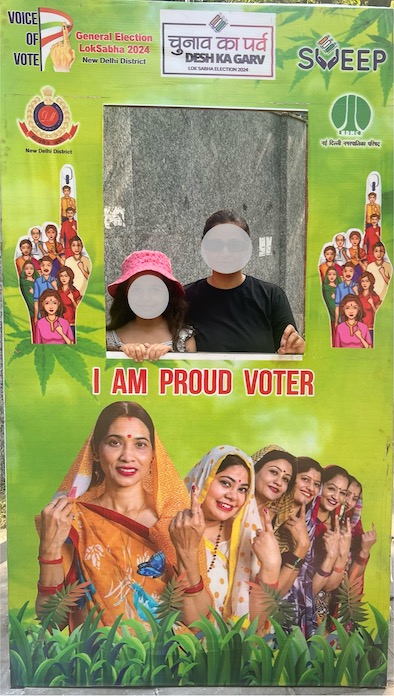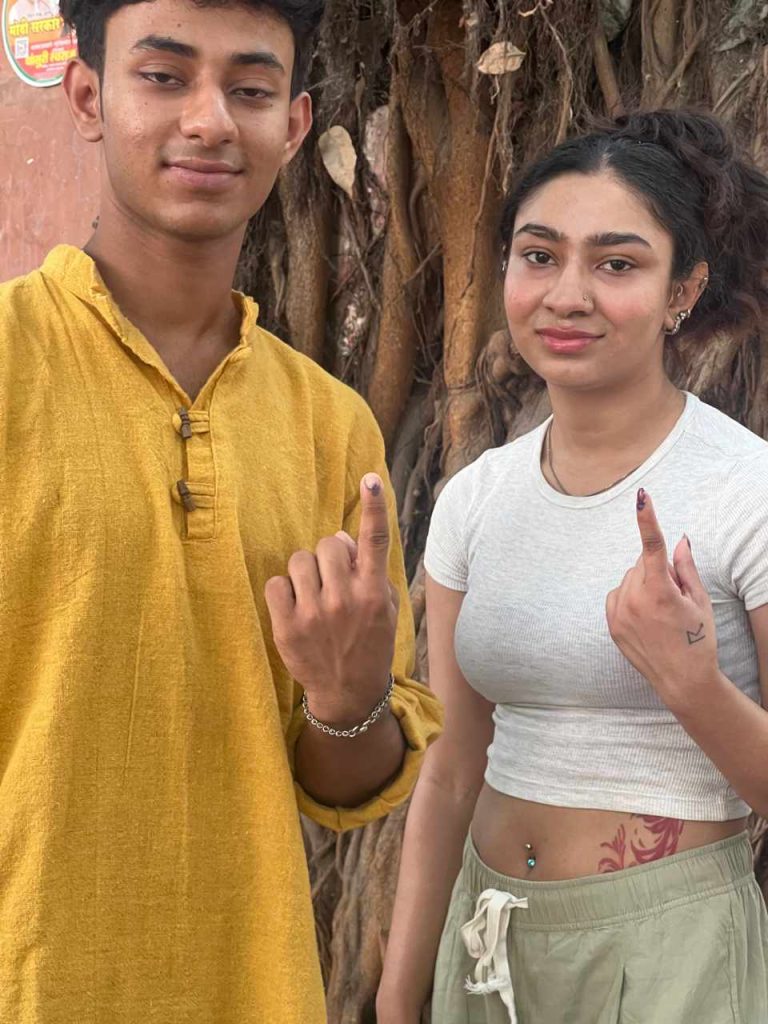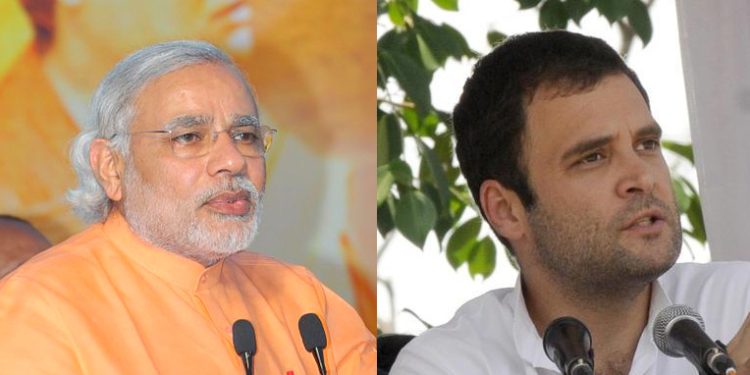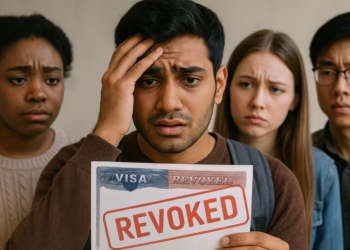The Indian diaspora has seldom been as polarised as it is under Prime Minister Narendra Modi’s Bharatiya Janata Party (BJP) government. The BJP’s “Hindu first” policies have spurred a troubling surge in hatred against India’s religious minorities, particularly the 200 million Muslims who now face rampant discrimination and vigilante violence under laws targeting their community.
The Modi administration’s poorly executed 2016 demonetisation, mishandled Goods and Services Tax implementation, and chaotic COVID-19 lockdowns have inflicted severe hardships on the most vulnerable segments of India’s 1.4 billion population. Modi’s second term, beginning in 2019, has seen a stark decline in human rights, especially in the Muslim-majority state of Kashmir. The government has weaponized anti-terror laws to silence dissent, imprisoning numerous civil society activists, and increasingly deploying law enforcement against opposition voices, thus severely undermining democratic institutions.
Despite numerous exposés of corruption involving Modi’s billionaire ally Gautam Adani and the controversial electoral bonds, the Modi juggernaut appeared unstoppable as the 2024 Indian elections approached, with exit polls further reinforcing the belief by predicting a landslide victory for Modi. Critics feared such a victory would enable the BJP to aggressively advance its Hindu nationalist agenda.
However, the election results defied expectations. Although the BJP emerged as the single largest party, winning 240 out of 543 seats, it fell short of an outright majority of 272. The BJP must now form a government with its ideologically diverse National Democratic Alliance (NDA) partners with whom the total number of seats add up to 293. The opposition Indian National Development Inclusive Alliance (INDIA), led by the Indian National Congress, has significantly strengthened, securing 232 seats.
NRI Affairs spoke with members of the Indian diaspora in Australia and New Zealand to gather their reactions to these surprising election results.

“India has historically been a country rich in religious, cultural, and ethnic diversity. However, in recent years, religious divides have been pumped in the Indian community to gain votes, affecting the social fabric of India both domestically as well as overseas.”, says Abbas Raza Alvi, poet, musician and community advocate. Alvi says the results have proven that the core Indian beliefs that promote peace and harmony cannot be driven by hate.
“It’s great news for the minority tribals in Manipur! I’m happy that the BJP was voted out from the Inner and Outer Manipur constituencies, leading to victories for the Congress candidates. It feels like a step towards ending the ethnic violence and returning to normalcy after the state’s long struggle for nearly 400 days of violence.”, according to Sydney based Mary Mizo, who belongs to the Kuki Zo community from the state of Manipur.
“My thoughts on India’s election results are that they show a changing political scene in the country. The BJP’s setback, even though they will still form the government, hints at a shift in what voters want and a different political vibe than before. The drop in the BJP’s seats from 303 in 2019 to 240 in 2024 indicates that things are definitely changing.”, she adds.
“This evolving political situation in India suggests that change is happening slowly, and nothing stays the same. The fact that the political landscape looks different from the early Modi years tells us that things are moving, and what people want can shift.”
Mary Mizo
Mary’s sentiments were echoed by Indira Laisram, a fellow Manipuri from the Meitei community, who said, “My initial reaction was, this is weird. India Alliance didn’t reach a majority yet it’s celebrating like they’ve won, and NDA, despite reaching a majority, is wallowing in sadness. But, on a serious note, I am pleased with the results, especially how Manipur’s electorate responded to Modi’s indifference toward the state’s prolonged crisis.”
According to Laisram, “This election signifies a fundamental aspiration: the resurgence of hope for a genuine democracy and freedom, and a harmonious nation where religious and caste differences don’t fuel discord among its people. Regarding social cohesion within the diaspora, diverse political viewpoints may spark vigorous discussions and debates, nurturing a deeper understanding of our shared heritage and the intricacies of Indian politics.”
Despite his initial disappointment, academic, filmmaker and Dalit rights advocate Vikrant Kishore feels the election has seen a stronger opposition, and the BJP no longer holds a full majority.
“This shift should impact governance style and functioning. Yet, political manoeuvres like horse-trading, a hallmark of those in power, may continue. I hope for betterment for India’s poor and downtrodden, who suffer the most regardless of who is in power. Bridging the gap in inequality is important, and issues such as climate change, environmental sustainability, and basic livelihood should be prioritised.”, Vikrant says, adding, “The Australian society needs to recognise the diversity within the Indian diaspora and its varying needs. It is vital to acknowledge and address the hateful divisions the diaspora faces, support sane voices, and avoid platforming hatemongers. This awareness is critical given their limited understanding of Indian and diasporic politics.”
Brisbane resident David Albuquerque says, “My initial reaction is sadness and concern: yes, a tad bit smaller number of voters have voted in a minority ‘Lynching Party’; but, a significant number still bought in to Modi’s ideas that non-Hindus are ‘infiltrators’ and ‘big breeders’ out to hurt and harm Hindus. This is not so at all. Áre Hindus so worried that we will attack and slaughter them?”
Shanti Raman, who is the Chair of the civil society organisation Hindus for Human Rights ANZ, is relieved that “despite the considerable threats to democracy and the blatant flouting of due process, we have seen a result thus far from the Indian election that provides some hope that (a flawed) democracy will survive in India.”
Shanti said, “In the last 10 years of the BJP (+allies) government, all four pillars of democracy have been subverted and compromised. We have witnessed the suppression of dissent, jailing of political rivals, activists and media, the expelling of parliamentarians on feeble grounds, the subversion of the judiciary and the election commission, and the tearing apart of the secular fabric of the country.”, adding, “I am cautiously optimistic that we are seeing a resurgence of the voice of the people, especially young people in India. Rebuilding the foundations of a democracy and an empowered civil society will take a mammoth collective effort from all stakeholders who believe in the constitution and the idea of a democratic, secular, pluralistic India.”
Auckland based physician, filmmaker, writer, activist and New Zealand Green Party politician Sapna Samant, who in her special election-time podcasts with colleague Oscar Fernandes had predicted 250 seats for the ruling BJP, is relieved at the results.

Samant says, “I’ve always believed that India will be ‘saved’ by those who have nothing to lose. The minorities. The Muslims, Dalits, indigenous and rural people, the women. This result has strengthened my belief.”
She thinks it is quite rich to say the results reflect the state of democracy in India when democracy has been actively destroyed by “the Hindu fascists”. Instead the results reflect the rebellion and determination of the people of India to seize the country from the precipice of authoritarianism.
“Our ancestors did not fight the British in vain. We have suffered enough. Democracy is what will happen now where diverse representatives in Parliament will work collaboratively to rejuvenate India.”, Samant says, adding, “We need to heal and we need to do it for and with each other.”
Devleena Ghosh, writer and Professor at the University of Technology Sydney, says Modi and his party no longer look invincible.
“They lost 60 seats in an environment where opposition parties were attacked, their leaders put in jail and barely any independent media presented the opposition’s points of view. The results in Uttar Pradesh, especially the loss of Ayodhya and the fact that Mr Modi’s own majority was slashed from 700,000 to 150,000, speak volumes. They show that bombast, boasting, fake news about economic growth and media stunts can only go so far if unemployment, prices and poverty continue to rise., she says, adding, “Democracies need good governments and effective oppositions are essential in holding them accountable. Hopefully, the diaspora, pro or anti BJP, will accept that the diversity of these election results demonstrate an example of that healthy polity required by modern democracies. As (social scientist) Mr Yogendra Yadav said, this election was not just fought by parties, but by the people.”
Manbir Kohli hosts a weekly radio program, Kehte Sunte Radio, from Sydney. The Indian election results have rekindled his hope for democracy among the Indian people.
“They have dealt a blow to the demagoguery, divisiveness, cronyism, dictatorialism in parliament, disrespect for and control of public institutions and the law, converting young unemployed men into rioters and murderers, threatening the constitution and the basis of secularism. Despite wielding huge money power, controlling the media, and silencing the opposition through fear and coercion, the BJP could only manage a sub-optimal, less-than-majority performance. This shows that democracy is alive and well in India.”
Kohli does not think the result will lead to better cohesion in the diaspora.
“The die is cast, and the social schisms are real now and will only get worse. Not only here in Australia but elsewhere and in India too. The hateful rhetoric has already been unleashed from the saffron bag of tricks.”, adding, “To change this course we will need a lot of work by people within the diaspora. Divisive elements here will need to be exposed, isolated and made ineffective.”
Stuti Bhatnagar, Research Fellow at The Australian National University says, “The results for me are very interesting and to some extent unpredictable. They confirm that the Indian electorate is politically aware and unwilling to accept mere rhetoric. It is also an indication of the disconnect between mainstream media and political accounts and the situation at the grassroots.”
The results, Bhatnagar believes, are good news for Indian democracy.
“It has put an end to the emerging single party dominance of the BJP and enabled a viable opposition which could exercise significant agency on political issues if they sustain their united stand. The results also indicate that voters need more than vitriolic campaign speeches. Instead, they desire representation and serious discussion on real issues such as jobs, unemployment and the rising cost of living. The outcome in UP particularly reflects the limits of a Hindutva driven communal campaign.”

The damage to social cohesion within the diaspora, Bhatnagar feels, requires a longer healing time especially since diaspora remains removed from the challenges of the Indian electorate.
Melbourne’s Tanvi Mor believes Indian democracy has been the biggest winner in the recently concluded elections.
“Indian voters have loudly expressed their desire for a robust opposition, and they have rejected the idea of a one-faced party. They want to hold the government accountable over multiple ground issues rather than a singular issue such as religion.”
Tanvi feels the ruling government will need to work with caution to keep the alliance together which will have a positive impact on policy formation and political decisions. She does not believe the result will have a major impact on social cohesion within the diaspora anytime soon and hoped Indians will continue living in harmony as Indians, rather than parts of their religious, caste or regional identities.
Melbourne based Indian-Australian stand-up comedian Ateev Dang is heartened by the election results, “witnessing a robust resurgence of the opposition and a clear rejection of divisive politics.”
He believes this outcome reflects the evolving nature of Indian democracy, where the electorate’s rejection of hate-driven narratives signals a commitment to inclusive governance and pluralistic ideals.
“Moving forward, these results hold the potential to enhance social cohesion within the Indian diaspora, fostering a sense of unity and shared values in opposition to divisive rhetoric.”, Dang says, adding, “As an individual deeply invested in both Indian and Australian cultures, I find hope in this demonstration of democratic resilience and the collective voice of citizens against intolerance.”
Saleha Singh, a Melbourne based communications expert, believes the election proved yet again that hate wins over love and empathy.
“Throughout the election, I have seen the ruling party having a go at the minorities, especially Muslims and come up ridiculous statements, with the Election Commission taking no action against hate speeches. As a Muslim woman, with family in India, I am always worried about my family. When did hate triumph over empathy and cohesion?”
Saleha says, “In Australia, I tend not to talk to people of Indian origin about politics, but am saddened to read about how the word Hindutva is bandied around. If these so called Hindus feel so strongly about Muslims in India, why are they even living in Australia? Why not go back?”
“Looking at the election results—and although the BJP did not get the majority—I am always surprised that people vote based on religion. We know that unemployment is high, cost of living are higher, women’s safety is a big concern, people in rural India don’t have 2 square meals and yet they get swayed by the rhetoric! But in saying this, I see hope—the INDIA alliance will be there as opposition to check what has so far gone unchecked. I hope the next few years see a marked different approach to the way media conducts itself, the courts more reliable and the CBI, ED and police work more for the common people rather than the BJP. And, all those people still in jail—with no bail options—get their day in the sun. I live in hope!”
Former United Nations employee Madhavi Srinivasan Johnson says the results of the Indian elections are reflective of the strong foundations of democracy laid in the Constitution adopted nearly 75 years ago.
“It shows the ability of the Indian voter to hold his or her own opinion beyond the rhetoric, and the misinformation and make an informed choice that transcends individual needs and is sensitive to community cohesion. It is heartening to especially see the younger generation engaged in debate and interrogation that has brought about a vibrant result that only a truly functioning democracy can produce.”
Madhavi feels the impact of the results on social cohesion within the diaspora is something that we will need to wait and watch.
“The differences that existed within the diaspora will remain. However, the opportunity for everyone to place differing opinions and be considered respectfully, has widened.”, she says.
Sydney restaurateur Rajwant Singh says Indian voters have shown a lot of maturity this time by going beyond the pomp and show. They have rejected the politics of hate and sent a clear message to the ruling party that India is not what they have been projecting. At the same time, these elections have also strengthened the regional parties, which is a great sign. In fact the balance of power will be in the hands of two regional parties.
Although he thinks Indian diaspora was being viciously divided, he is hoping that ultra right wing agents of hate will also get a lesson from this. He hopes Mr Modi and his party got the message that no one is invincible.
Adelaide academic Priya Chacko expressed the hope that the election and its outcome indicates the reality of Modi’s polarising leadership which will temper Australian politicians’ enthusiasm for him and pro-Modi diaspora groups in the future.
The Indian election results are a setback to religion politics, according to veteran journalist Neeraj Nanda of South Asia Times.
“The mix of religion and politics is not in conformity with the Indian constitution. India’s pluralist democracy is powered by its people with the constitution as a guiding force. The results have consolidated this position and a secular, multicultural,and democratic ethos ushered.” Nanda believes the enhancement of a similar ethos in India will definitely consolidate social cohesion within the Diaspora.










